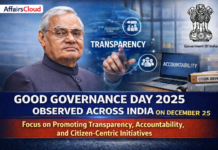The Department of Science and Technology (DST) under Union Ministry of Science and Technology has initiated a Cyber Physical Systems (CPS) programme.
- This programme has a financial outlay of Rs. 3000 crore, out of which Rs. 100 crore have been earmarked in the current financial year itself. K.R. Murli Mohan is the head of the CPS programme at DST. The initial action in this programme will take place at some of the Indian Institutes of Technology (IITs).
About Cyber Physical Systems (CPS):
The term Cyber Physical Systems (CPS) originated in year 2006. It was coined by Helen Gill at the National Science Foundation in the United States.
- In simple words CPS is a physical system which is controlled by a computer
 programme/ algorithm that has been closely integrated with internet and its users. CPS is capable of performing complicated tasks just like humans.
programme/ algorithm that has been closely integrated with internet and its users. CPS is capable of performing complicated tasks just like humans. - CPS follows an interdisciplinary approach in which cyber technology is combined with conventional knowledge areas such as physics, electronics, communication, aviation etc. on real-time basis. Smart electricity grids, robot-executed surgeries, self-driving cars and Unmanned Aerial Vehicles (UAV)/Drones are some examples of CPS.
Cyber Physical Systems (CPS) Vs. Demographic Dividend – Thoughts of PM Modi:
At 104th Indian Science Congress in Tirupati, Prime Minister Modi referred to cyber physical systems as a challenge which can have a negative impact on India’s demographic dividend.
- PM Modi’s concerns are justified, as in year 2020 India will have the world’s largest population of working people. The rise of CPS may take away jobs from employable youth and thereby snatching away India’s demographic dividend.
- PM Modi suggested that by training the workforce in areas of robotics, Internet-of-Things, quantum communication, artificial intelligence and digital manufacturing this threat can be converted into a golden opportunity.
Road Ahead for CPS in India:
India is still a new comer in the field of CPS. National Science Foundation of the United States started conducting research in this area way back in 2003. Indian Govt.’s initiative in this direction is a positive sign.
- Sandeep Kumar Shukla, a computer science professor at IIT-Kanpur believes that success of this programme depends on collaborative efforts of researchers and specialised institutions.
- Mr. K.R. Murli Mohan has mentioned that Centres of excellence in CPS would be established at IITs and Universities. Dedicated courses on CPS would also be offered to students.
- Adoption of CPS will usher in a productive revolution across all sectors of human enterprise.



 programme/ algorithm that has been closely integrated with internet and its users. CPS is capable of performing complicated tasks just like humans.
programme/ algorithm that has been closely integrated with internet and its users. CPS is capable of performing complicated tasks just like humans.

